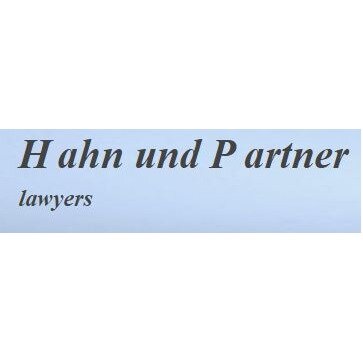Best Merger & Acquisition Lawyers in Germany
Share your needs with us, get contacted by law firms.
Free. Takes 2 min.
Or refine your search by selecting a city:
List of the best lawyers in Germany
About Merger & Acquisition Law in Germany
Merger & Acquisition (M&A) law in Germany involves the regulations and legal processes through which companies are acquired or merged. This field of law combines corporate, competition, and employment law, among others, to facilitate business consolidation and restructuring. Germany is one of the leading countries in Europe for M&A activities, thanks to its strong economic base and attractive regulatory environment. German M&A law ensures a transparent market and fair competition while protecting stakeholders' interests during transactions.
Why You May Need a Lawyer
There are several scenarios in which you might require legal assistance in M&A activities:
- Structuring Transactions: Legal advice is crucial for structuring transactions to optimize tax implications and ensure compliance with local laws.
- Due Diligence: Lawyers help with the due diligence process, assessing the target company's legal, financial, and operational status.
- Negotiations: A lawyer can aid in negotiating terms and conditions of the transaction to protect your interests.
- Regulatory Compliance: Ensuring that the transaction complies with competition laws and other regulatory requirements.
- Dispute Resolution: In case of disputes, legal support is crucial to resolve issues efficiently and effectively.
Local Laws Overview
Several key aspects of local laws are relevant to M&A in Germany:
- German Stock Corporation Act (Aktiengesetz): Governs corporate governance matters and transactions involving stock corporations.
- German Transformation Act (Umwandlungsgesetz): Regulates mergers, demergers, transformations, and other forms of corporate restructuring.
- Act Against Restraints of Competition (Gesetz gegen Wettbewerbsbeschränkungen): Addresses anti-competitive practices and outlines merger control procedures.
- German Civil Code (Bürgerliches Gesetzbuch): Offers a general legal framework that applies to contractual and liability aspects of M&A transactions.
Frequently Asked Questions
What is the role of a notary in M&A transactions in Germany?
Notaries in Germany are responsible for authenticating significant transactions, including M&A deals, ensuring they meet the required legal standards. Their role includes drafting agreements, witnessing signings, and filing necessary legal documentation.
How does due diligence work in a German M&A transaction?
Due diligence is a comprehensive appraisal of a business by potential purchasers, to evaluate commercial potential and risks. It involves reviewing financial records, legal obligations, intellectual property rights, and contractual agreements.
What regulatory approvals are needed for M&As in Germany?
Some M&A transactions require approval from German or EU competition authorities to ensure compliance with antitrust laws. This is particularly essential for larger transactions that might impact market competition.
How are employee rights protected in German M&As?
Under German law, employees have specific rights and protections during M&As, including the right to be informed and consulted about the transaction. Additionally, labor agreements often carry over to the acquiring company.
Can foreign investors engage in M&A activities in Germany?
Yes, Germany is open to foreign investment. However, certain strategic industries may be subject to additional scrutiny under foreign trade regulations to protect national interests.
What are the typical steps involved in a German M&A transaction?
Typical steps include strategic planning, target identification, due diligence, negotiation and drafting of agreements, regulatory approval, and closing the deal.
Are there specific tax considerations in German M&A transactions?
Tax considerations are crucial in structuring deals, influencing decisions about asset versus share deals. It's essential to align with German tax regulations and explore tax-efficient transaction structures.
What are the common forms of payment in German M&A transactions?
Transaction payments in Germany can be made through cash, stock exchange, or a combination of both. The choice depends on the financial strategies and preferences of the involved parties.
How are post-merger integrations handled in Germany?
Post-merger integration involves combining and reorganizing the merged companies to achieve synergy. Legal professionals ensure that integration processes comply with German laws.
What happens if a merger fails regulatory clearance in Germany?
If a merger does not receive the required regulatory clearance, it cannot proceed. Companies might need to make structural changes or abandon the deal.
Additional Resources
The following resources and organizations can be helpful:
- Federal Cartel Office (Bundeskartellamt): Offers guidance on competition law relevant to M&A.
- German Federal Ministry for Economic Affairs and Energy (BMWi): Provides information on foreign trade regulations and policies.
- Chambers of Commerce: Local chambers can provide valuable insights and support, especially for foreign investors.
Next Steps
If you need legal assistance in M&A, consider the following steps:
- Consult a Lawyer: Seek a lawyer specializing in M&A for expert legal advice. Look for firms with experience in the German market.
- Prepare Documentation: Gather necessary documents that provide insight into your business, such as financial statements and legal contracts.
- Define Objectives: Be clear about your goals and requirements in the M&A transaction to streamline legal consultations.
Lawzana helps you find the best lawyers and law firms in Germany through a curated and pre-screened list of qualified legal professionals. Our platform offers rankings and detailed profiles of attorneys and law firms, allowing you to compare based on practice areas, including Merger & Acquisition, experience, and client feedback.
Each profile includes a description of the firm's areas of practice, client reviews, team members and partners, year of establishment, spoken languages, office locations, contact information, social media presence, and any published articles or resources. Most firms on our platform speak English and are experienced in both local and international legal matters.
Get a quote from top-rated law firms in Germany — quickly, securely, and without unnecessary hassle.
Disclaimer:
The information provided on this page is for general informational purposes only and does not constitute legal advice. While we strive to ensure the accuracy and relevance of the content, legal information may change over time, and interpretations of the law can vary. You should always consult with a qualified legal professional for advice specific to your situation.
We disclaim all liability for actions taken or not taken based on the content of this page. If you believe any information is incorrect or outdated, please contact us, and we will review and update it where appropriate.
Browse merger & acquisition law firms by city in Germany
Refine your search by selecting a city.














